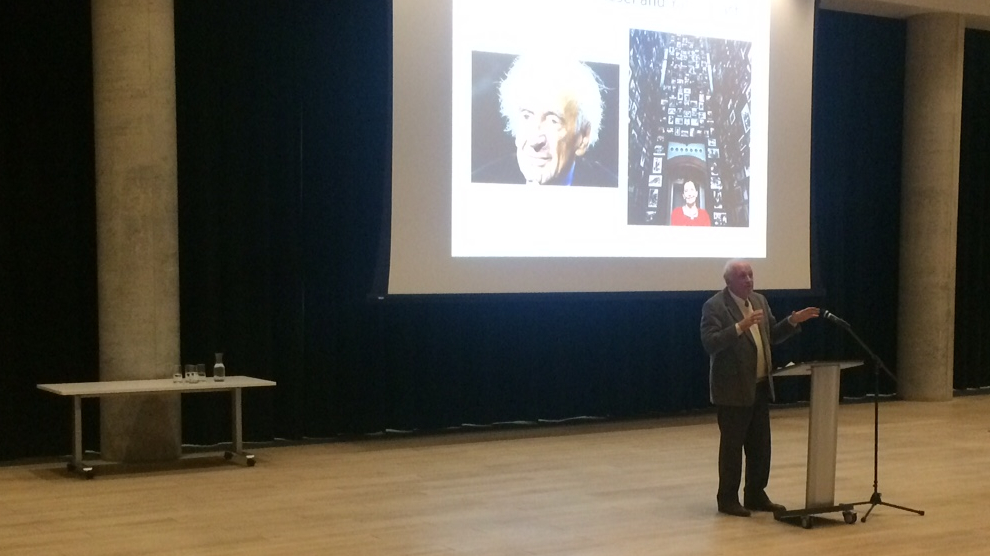History
Tolerance first
David Korn’s life has taken him from the orphanages of Slovakia to the Halifax Citadel, but he says the most universal element of humanity is acceptance

caption
David Korn speaks at International Holocaust Remembrance Day in Halifax.
caption
David Korn speaks during the International Holocaust Remembrance Day in Halifax.Above all else, David Korn’s life as a Holocaust survivor has shown him that tolerance is the only way forward.
His story begins in Slovakia, where he and his brother, Jacob, were hidden in a Christian orphanage during the war. After the war ended, his parents were dead, and getting out of the orphanage was more complicated than anticipated.
“Our priest let us go because my uncle brought a picture of us,” he said to The Signal in a measured, lightly accented voice, adding that many Catholic institutions were reluctant to release children from their care after the danger had lifted.
“We were taken out of the orphanage, and I was with my uncle and aunt, and everything was good and prosperous — then the communists came.”
Korn was one of five people speaking at the Halifax Central Library about the tragedies of World War II on Thursday evening, in honour of International Holocaust Remembrance Day. The United Nations named Jan. 27 as the day of remembrance in 2005, and events have been hosted in Halifax since 2007.
This year’s event celebrated the legacies of two leading educators in Holocaust history who passed away in 2016, Elie Wiesel and Yaffa Eliach. Speaking to a crowd of about 200 people, David Korn said he knew Yaffa Eliach personally —“although for me, she is Yaffa Shemesh.”
In 1948, Korn, his brother and his aunt and uncle fled Slovakia in favour of Israel. It was a long journey, delayed by Israel’s War of Independence, with several stops. The first was in France where Korn learned to speak French. He narrowly missed crossing paths with Wiesel in Paris, as the writer had been there a year earlier, also learning the language.
It was in Israel that he met Yaffa Eliach. The two were in high school together in the early 1950s. Eventually, he joined the army and became a paratrooper. Following his time in the military, he decided to study at Technion, the country’s most prestigious engineering university.
Upon graduating, he received an offer to go to Canada for his masters.
“I got a scholarship on the condition that my English was good. So I knew that my English was good, so I left Israel and came to Canada. And (when I arrived) I was told that I was not accepted to the university there because I don’t know how to speak any English,” he said after the talk, still amused — and thankful — that he did not make it to study in Guelph.
He ended up in Montreal two years before the Expo, and instead of pursuing further education made use of his engineering degree and went to work there.
In time, he ended up working on hydroelectric dams, something that served him well when he made his way to Halifax and directed the restoration of the Halifax Citadel.
“There were many walls (in the cavalry building) that were leaning, and I devised a system where I could predict if the wall would fall or not,” he said. “I avoided rebuilding something that didn’t have to be rebuilt.”
These days, Korn helps educate local residents on Holocaust history. He shares his experiences — often at high schools — as he works with the Atlantic Jewish Council, which is a key player in promoting Holocaust education and organized the event.
He also stresses the importance of acceptance of different people and cultures. “You have to learn that if there is no tolerance between people, it will be bad.”
When speaking of intolerance in 2017, David Korn gives the example of the turmoil in Syria. But for himself and other Holocaust survivors, living through injustice and wars means that they must also continue speaking to remember those who have been lost.

